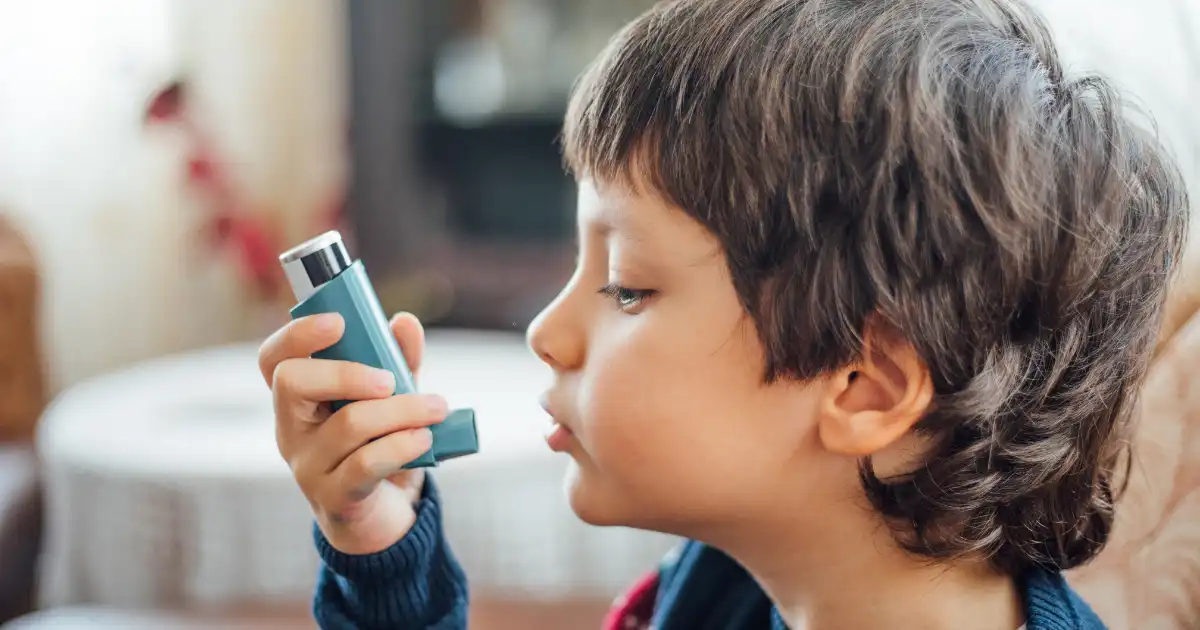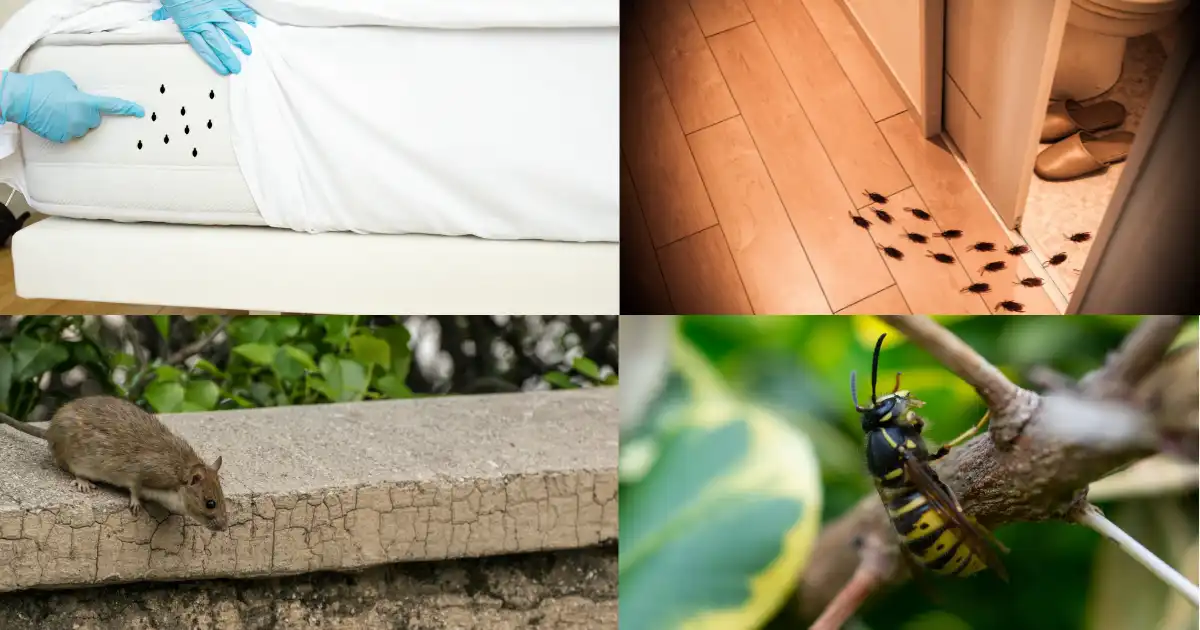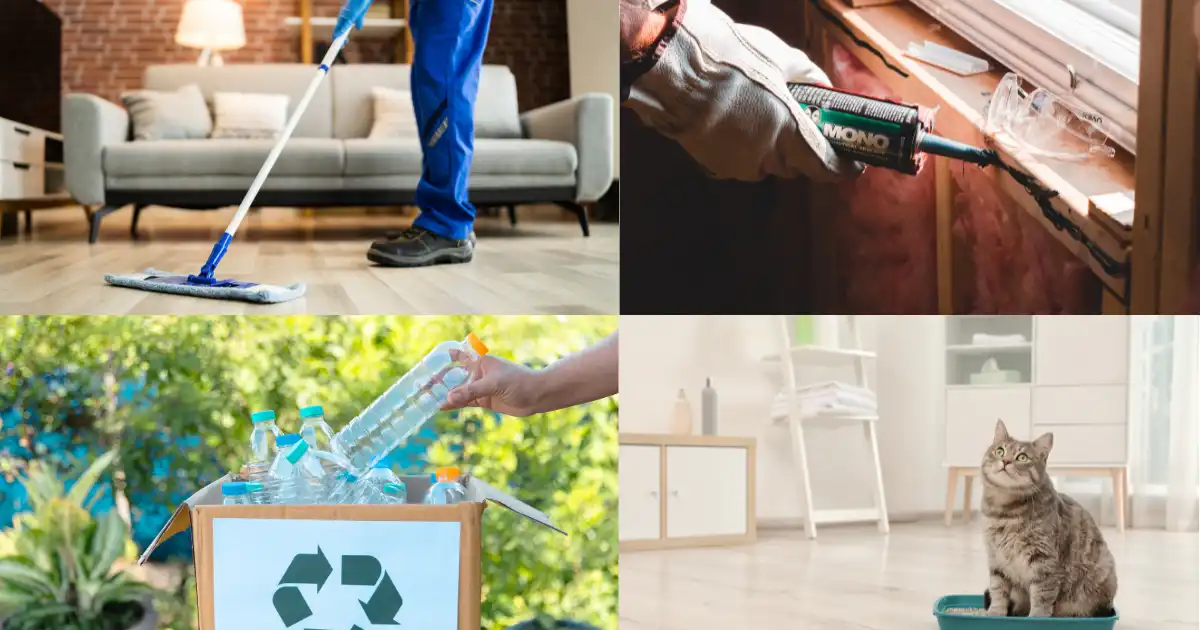The lives of millions of people are affected by asthma and allergies are always fighting. The presence of pests could cause symptoms to become more severe. Dust mites or cockroaches excrement, rodent dander and most common household insects could be the primary source of allergic reactions within the house, and may cause asthma attacks. But with the right information and prevention measures you can protect your health and the health of your household. This extensive guide provides the methods by the way that pests can trigger asthma, allergies as well as the most effective methods of controlling for families suffering from allergies, and offers practical suggestions to help you breathe throughout the year.
What is Pest Control for Allergies and Asthma?
Pest Control for Allergies and Asthma refer to allergic reactions and asthma symptoms that result from contact with pests as well as their compounds. They can manifest as droppings, skins or droppings, and urine, saliva or bodies that are rotting.

Key Points:
- Allergens that result from pests can be airborne and be then picked into the air by surface.
- Children, the elderly or asthmatics sufferers are especially at the risk.
- The ability to control pests effectively is crucial to create an atmosphere that’s safe for the family.
Types of Pests That Trigger Allergies and Asthma
1. Dust Mites
- Where is it found? Carpets, bedding curtains, furniture and carpets.
- Allergy triggers are: Body fragments and Feces.
- The symptoms are: Sneezing, runny eyes Itching the nose, asthmatic attacks.
2. Cockroaches
- Where is it found? Bathrooms, kitchens basements as well as behind the appliances.
- Allergy triggers are: Droppings, saliva and droppings, skin shed.
- The symptoms are: Skin rashes, nose congestion and serious asthma (especially for children).
3. Rodents
- Where is it found? Basements, attics, kitchens, and walls.
- Allergy triggers are: Urine, dander droppings and urine.
- The symptoms are: Eyes that are watery, sneezing and dry skin.

4. Molds and Fungi
- Where is it found? Wet areas, basement bathrooms, sinks under sinks.
- Allergy triggers are: Spores that are released to the atmosphere.
- The symptoms are: Coughing, wheezing or sinus congestion.
5. Stinging Insects
- Where is it found? Attics, Gardens, attics and Eaves. Wall space wall.
- Allergy triggers are: Venom from stings (bees and wasps).
- The symptoms are: Swelling, hives anaphylaxis (in extreme cases).
6. Pet Dander and Other Triggers
- Where is it found? Pets can carry ticks, flies, and even bring outdoor pollens and allergens.
- Allergy triggers are: Saliva, dander and other pests that hitchhike.
- The symptoms are: Eyes that are itchy, sneezing and asthma.
Cost of Pest Control by Type
| Pest Type | DIY Treatment Cost | Professional Treatment Cost |
| Dust Mites | $20-$100 | $100-$300 |
| Cockroaches | $30-$120 | $150-$350 |
| Rodents | $25-$100 | $150-$400 |
| Mold/Fungi | $30-$150 | $500-$2,500+ |
| Stinging Insects | $20-$80 | $100-$300 |
| Fleas/Ticks | $20-$80 | $100-$250 |
DIY costs include traps sprays, and other equipment for cleaning. The prices for professional services are different based on the location and intensity.
Cost of Pest Control by Home Size
| Home Size | DIY Treatment Cost | Professional Treatment Cost |
| Apartment/Condo | $20-$80 | $80-$200 |
| “The small home” (<1,500 sq ft) | $30-$100 | $120-$250 |
| Medium Home (1,500-2,500 sq ft) | $50-$150 | $200-$400 |
| Large Home (>2,500 sq ft) | $80-$200 | $300-$600 |
The larger homes as well as ones with more severe pests could cost more.
Factors Influencing Pest Related Allergies and Asthma
- Climate The humid, warm or humid climate can trigger an expansion in quantity of mould and insects.
- Dirty Home: Clutter or food particles can be a magnet for insects.
- Water: the dampness water leaks, as well as the humid conditions create ideal habitats for pests and mold.
- Pet: Could bring ticks or fleas, in addition to outdoor allergies.
- Construction: The condition of older homes could have more access points, as well as inaccessible insects.
- Ventilation A lack of air circulation can cause the accumulation of allergens.
How Pests Trigger Allergies and Asthma
- Allergens: If they are present the salivary glands of Pesticides salivary glands droppings, or shed skins may cause allergic reactions.
- Aerosol Particles Allergens that are caused by insects are airborne, and can be breathed in.
- Mold related spores: It releases mold spores that can trigger respiratory issues.
- Stings and bites: Certain insects inject poison or cause irritation to the skin.
- Secondary diseases The infection is caused through rubbing skin rashes or bites may cause infection.
How to Prevent Pest Related Allergies and Asthma

1. Home Cleaning and Maintenance
- Clean your carpets and upholstery regularly by using an HEPA vacuum cleaner that does not come with an air filter.
- Be sure to wash your curtains and bedding making use of hot water at least every other week.
- Cut down on clutter, and make it harder for insects to get through.
2. Sealing Entry Points
- Repair cracks and gaps in windows doors and foundations.
- Repairs and installation of door sweeps. screens.
3. Reducing Moisture and Humidity
- Repair leaks. Utilize dehumidifiers in areas with high humidity.
- It is important to ensure that bathrooms are properly ventilated, like kitchens.
4. Safe Food Storage and Waste Management
- Food items must be stored in airtight containers.
- Clean any crumbs or spills immediately.
- Make sure to dispose of garbage regularly, and then place them in containers that are sealed.
5. Pet Care and Hygiene
- Make sure that your pet’s coat gets groomed regularly and washed.
- Be sure to keep fleas and ticks at bay.
- Clean pet bedding regularly.
6. Air Quality and Ventilation
- Utilize air purifiers that are equipped by HEPA filters.
- Get fresh air in by opening your windows when the weather allows.
- Cleaning your air vents, and replacing filters regularly.
Best Pest Control Methods for Sensitive Households
1. Integrated Pest Management (IPM)
- It focuses on prevention, surveillance as also the implementation of targeted treatment.
- Use the most non-harmful methods first.
- Reduces dependence on chemical pesticides.
2. Non Toxic and Low Allergen Products
- Use diatomaceous Earth, boric acid and other sprays based on essential oils.
- Be cautious of foggers and sprays, which emit strong odors.
3. Professional Pest Control for Allergy Sufferers
- Select businesses that have experience in working on homes that are prone to sensitivity.
- Alternatives to the demand which offer non-toxic “green” pest control options.
- Make sure you are fully aware before having any treatment.
4. When to Call an Expert
- Infections that come back or are extremely severe.
- The structural or mold damage.
- As symptoms of asthma or allergies become worse the symptoms, it’s an indication of asthma.
Conclusion
Pest control isn’t just concern comfort It’s also about health, particularly for those who suffer with asthma or allergies. If you understand the signs of a pest infestation, you can apply the correct methods of treatment, prevention and strategies to ensure your home is healthier, safer and secure for both you and your children.
Be aware that the most efficient method is to combine effective home maintenance with effective prevention and professional help in the event of a need. Beware of pests that could take over your home and well-being. Get rid of them now by contacting with our experts.
FAQs
Which insects are the most likely to cause allergic asthma or allergies?
Rodents, cockroaches, dust mites, stinging insects, and mould are some of the most common causes.
What are the top pest control solutions suitable for those suffering from asthma or allergies?
There are many, but be sure to select safe alternatives and always follow safety guidelines.
When is the ideal time to develop a pest prevention plan if I have allergies?
At a minimum, you should check and maintain your pest control plan every quarter, or more often if you experience frequent problems.
Can I prevent pest related allergies without using chemicals?
Yes, by sealing entryways and reducing moisture in your home, you can help prevent pest allergies without chemicals.
What should I do if my symptoms become worse after pest control treatment?
Ventilate your home, consult your physician, and inform your pest control company about your symptoms.
Can air purifiers help with allergies caused by pests?
Yes, HEPA air purifiers can reduce airborne allergens and improve indoor air quality.
Is professional pest control worth it for allergy sufferers?
Yes, especially in cases of severe infestations or if DIY methods are not effective.

